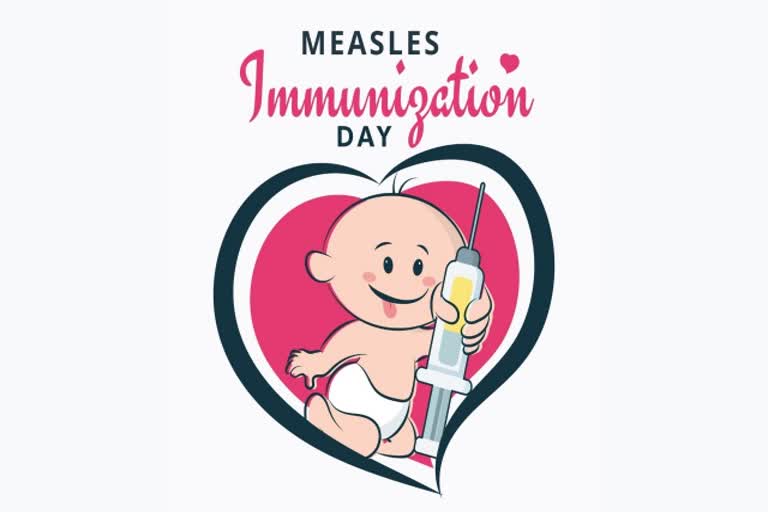According to the World Health Organization (WHO), Even though a safe and cost-effective vaccine is available, in 2018, there were more than 1,40,000 measles deaths globally, mostly among children under the age of five. Measles vaccination resulted in a 73% drop in measles deaths between 2000 and 2018 worldwide
Measles is a highly contagious disease caused by a virus and has no curative treatment. The only way to prevent it is through vaccination, which is both safe and cost-effective. WHO also mentions that before the introduction of the measles vaccine in 1963 and widespread vaccination, major epidemics occurred approximately every 2–3 years and measles caused an estimated 2.6 million deaths each year. However, measles vaccination resulted in a 73% drop in measles deaths between 2000 and 2018 worldwide.
More About Measles!
Measles is caused by a virus that belongs to the paramyxovirus family and can spread through the air when an infected person coughs or sneezes. The virus usually enters the respiratory tract and gradually affects the whole body. Unvaccinated young children are at the highest risk as compared to others. However, unvaccinated pregnant women and people who received the vaccination but did not develop immunity can also get infected.
Also Read: Proper Nutrition Is Important For A Healthy Baby
Symptoms
Symptoms may appear 7-14 days after coming in contact with the virus and may worsen with time as well as cause certain complications. According to the Centres for Disease Control and Prevention (CDC), the symptoms after a contraction of the disease are as follows:
7 – 14 days after a measles infection: first symptoms show
Measles typically begins with
- high fever (may spike to more than 104°),
- cough,
- runny nose (coryza), and
- red, watery eyes (conjunctivitis).
2-3 days after symptoms begin: Koplik spots
Tiny white spots (Koplik spots) may appear inside the mouth two to three days after symptoms begin.
3-5 days after symptoms begin: measles rash
Three to five days after symptoms begin, a rash breaks out. It usually begins as flat red spots that appear on the face at the hairline and spread downward to the neck, trunk, arms, legs, and feet.
- Small raised bumps may also appear on top of the flat red spots.
- The spots may become joined together as they spread from the head to the rest of the body.
- When the rash appears, a person’s fever may spike to more than 104° Fahrenheit.
Complications Of Measles
Measles can also result in complications including:
- Ear infection
- Diarrhoea, which can also cause dehydration
- Pneumonia, bronchitis
- Encephalitis
- Problems during pregnancy
- Eye infection (conjunctivitis)
- Blindness
About The Vaccination
The National Health Portal of India (NHP) states, “WHO recommended immunization for all children with 2 doses of measles vaccine, either alone, or in a measles-rubella (MR) or measles-mumps-rubella (MMR) combination. In India, measles vaccination is given under Universal Immunisation Programme as Measles-Rubella (MR) vaccine at 9-12 months of age and 2nd dose at 16-24 months of age.”



